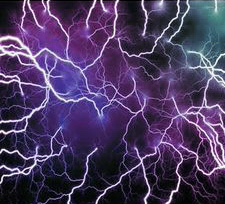 Biologists know that many animals have acute sensitivities to electrical fields, and that this sensitivity often provides critical information about the world for these organisms. Now research has identified a mechanism. A new study states: “Electroreception is an ancient subdivision of the lateral line sensory system, found in all major vertebrate groups.” That includes humans!
Biologists know that many animals have acute sensitivities to electrical fields, and that this sensitivity often provides critical information about the world for these organisms. Now research has identified a mechanism. A new study states: “Electroreception is an ancient subdivision of the lateral line sensory system, found in all major vertebrate groups.” That includes humans!
Here’s a summary of the evolutionary route by which this sense made its way from early fish to land vertebrates. Louis Slesin of Microwave News proposes: “A possible implication is that some of us, like sharks and rays, may be able to detect very weak electric fields and perhaps a subset has an electroreceptive system that has gone awry.” (Short Takes on right.)
The New York Times published an opinion piece (too controversial for regular news?) which blithely says: “If we had the electrical sensitivity of that ancient aquatic ancestor or the paddlefish, we would find the world we live in now, which roars with electrical current, deeply inhospitable.”
Well, “deeply inhospitable” just about perfectly describes the experience of many electrically sensitive people. “Smart” meter installations have meant that sensitive individuals who have managed this issue by at least having a home and a neighborhood that was safe, now have nowhere to turn, no safe refuge.
The time has come to start to reckon with such sensitivity and the way the heedless ever-increasing saturation of our environment with electrical fields of various sorts affects those people who can feel it now–and those people who don’t feel it consciously, yet.









Very interesting. It makes sense that artificial EMFs especially screw up those who have a more sensitive radar, so to speak, for the earth’s natural EMFs. I have personally noticed, and maybe this is coincidental, that EHS people in videos and whom I have met are mostly female and of relatively light or fair complexion. I have a theory, that the ability to be oriented in the earth’s magnetic field and know which way is north or south is probably strongly in peoples who evolved at the edge of the glaciers in the Ice Ages and who had to migrate, as compared to darker equatorial peoples who presumably did not. This “compass” ability has been shown to be stronger in some people than others, and it can be interfered with by placing a magnet on the forehead. Studies could be done with EHS people to see if they have more of this compass ability.